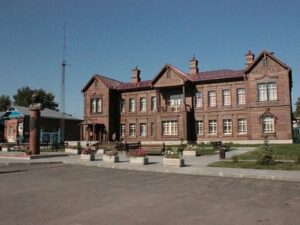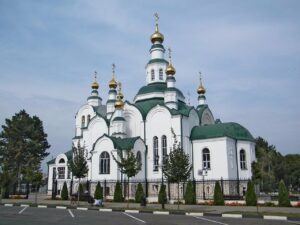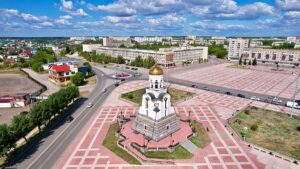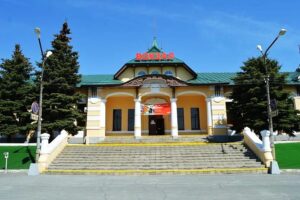Discovering Cornwall: A Comprehensive Review

Cornwall, located in the southwestern tip of England, is a county renowned for its rugged coastline, rich cultural heritage, and distinctive Celtic identity. This extensive article provides an in-depth exploration of Cornwall’s history, geography, economy, culture, notable landmarks, and its significance as a unique region within the United Kingdom.
History of Cornwall
Cornwall has a history that stretches back thousands of years, with evidence of human habitation dating to the Neolithic period. The region’s Celtic roots are evident in its early inhabitants, who developed distinctive cultural practices, language (Cornish), and traditions that set Cornwall apart from other parts of England.
During the Roman period, Cornwall was known for its tin mining industry, which flourished due to the region’s rich mineral deposits. The tin trade brought prosperity and connected Cornwall to the wider Roman Empire through maritime trade routes.
In the medieval era, Cornwall’s economy thrived on mining, fishing, agriculture, and maritime trade. The county’s strategic coastal location made it vulnerable to invasions, leading to the construction of fortifications and castles, such as Tintagel Castle, associated with the legendary King Arthur.
Geography and Demographics
Cornwall is located on the southwestern peninsula of England, bordered by the Atlantic Ocean to the north and west, and the English Channel to the south. The county is characterized by its rugged coastline, sandy beaches, moorland, and picturesque fishing villages, offering diverse landscapes that attract visitors and outdoor enthusiasts.
The population of Cornwall is predominantly English-speaking, with a smaller community of Cornish speakers and a rich cultural heritage that celebrates Celtic traditions and folklore. The county’s towns and villages include Truro (the administrative center), St Ives, Newquay, Falmouth, and Penzance, each with its own distinct character and history.
Economy and Industry
Cornwall’s economy has historically relied on agriculture, mining, fishing, and tourism:
- Mining: Historically known for tin and copper mining, which declined in the 19th century but left a legacy of industrial heritage sites such as the UNESCO World Heritage Site of the Cornwall and West Devon Mining Landscape.
- Fishing: Coastal communities in Cornwall continue to rely on fishing as a livelihood, with a focus on sustainable practices and seafood processing industries.
- Tourism: Cornwall is a popular tourist destination, attracting visitors with its scenic beauty, cultural attractions, surfing beaches, and historic landmarks such as St Michael’s Mount and the Eden Project.
Culture and Heritage
Cornwall’s rich cultural heritage is celebrated through its language, music, dance, and festivals:
- Cornish Language: Cornish, a Celtic language related to Welsh and Breton, experienced a revival in recent decades, with efforts to preserve and promote its use in education and cultural activities.
- Traditional Music and Dance: Cornwall has a vibrant folk music scene, with traditional instruments such as the tin whistle and accordion accompanying lively dances like the Cornish dance and the Furry Dance.
- Festivals: The county hosts numerous festivals throughout the year, including the Golowan Festival in Penzance, celebrating Midsummer with parades, music, and fireworks, and the St Ives September Festival, featuring arts, music, and literary events.
Education and Research
Cornwall is home to educational institutions that contribute to its cultural and economic vitality:
- University of Exeter (Cornwall Campus): Offers undergraduate and postgraduate programs in subjects such as environmental science, marine biology, and renewable energy, reflecting Cornwall’s focus on sustainability and research.
- Cornwall College: Provides vocational training and higher education courses in areas such as agriculture, hospitality, and creative industries, supporting local businesses and industries.
Notable Landmarks and Attractions
Cornwall boasts numerous landmarks and attractions that showcase its natural beauty, history, and cultural significance:
- St Michael’s Mount: A tidal island with a medieval castle and gardens, accessible by foot at low tide or by boat.
- The Eden Project: A unique botanical garden housed in biomes that simulate different climates, showcasing plants from around the world and promoting environmental awareness.
- Tintagel Castle: A legendary site associated with King Arthur, featuring dramatic cliffs, ruins of a medieval castle, and panoramic views of the Atlantic Ocean.
Events and Festivals
Cornwall’s calendar is filled with events that celebrate its heritage, culture, and natural environment:
- Royal Cornwall Show: One of the largest agricultural shows in the UK, featuring livestock competitions, agricultural machinery displays, and entertainment for all ages.
- Boardmasters Festival: A popular music and surfing festival held annually in Newquay, attracting international artists and surfers to compete in professional competitions.
- Porthcawl Food and Drink Festival: A celebration of local cuisine, featuring food stalls, demonstrations, and tastings showcasing Cornwall’s culinary delights.
Sustainability and Conservation
Cornwall is committed to sustainability and conservation initiatives, with projects focused on renewable energy, marine conservation, and preserving its natural landscapes and wildlife habitats. The county’s coastal paths, nature reserves, and designated Areas of Outstanding Natural Beauty (AONBs) offer opportunities for outdoor recreation and wildlife observation.
Conclusion
Cornwall captivates residents and visitors alike with its rich history, stunning landscapes, and vibrant cultural scene. From its ancient Celtic roots and industrial heritage to its modern focus on tourism, education, and sustainability, Cornwall embodies a unique blend of tradition and innovation. Whether exploring its rugged coastline, sampling local cuisine, or participating in cultural festivals, Cornwall invites discovery and appreciation of its timeless beauty and enduring charm. As a gateway to the Celtic spirit of England, Cornwall continues to inspire and enchant those who are drawn to its shores and embrace its distinctive identity within the United Kingdom.




